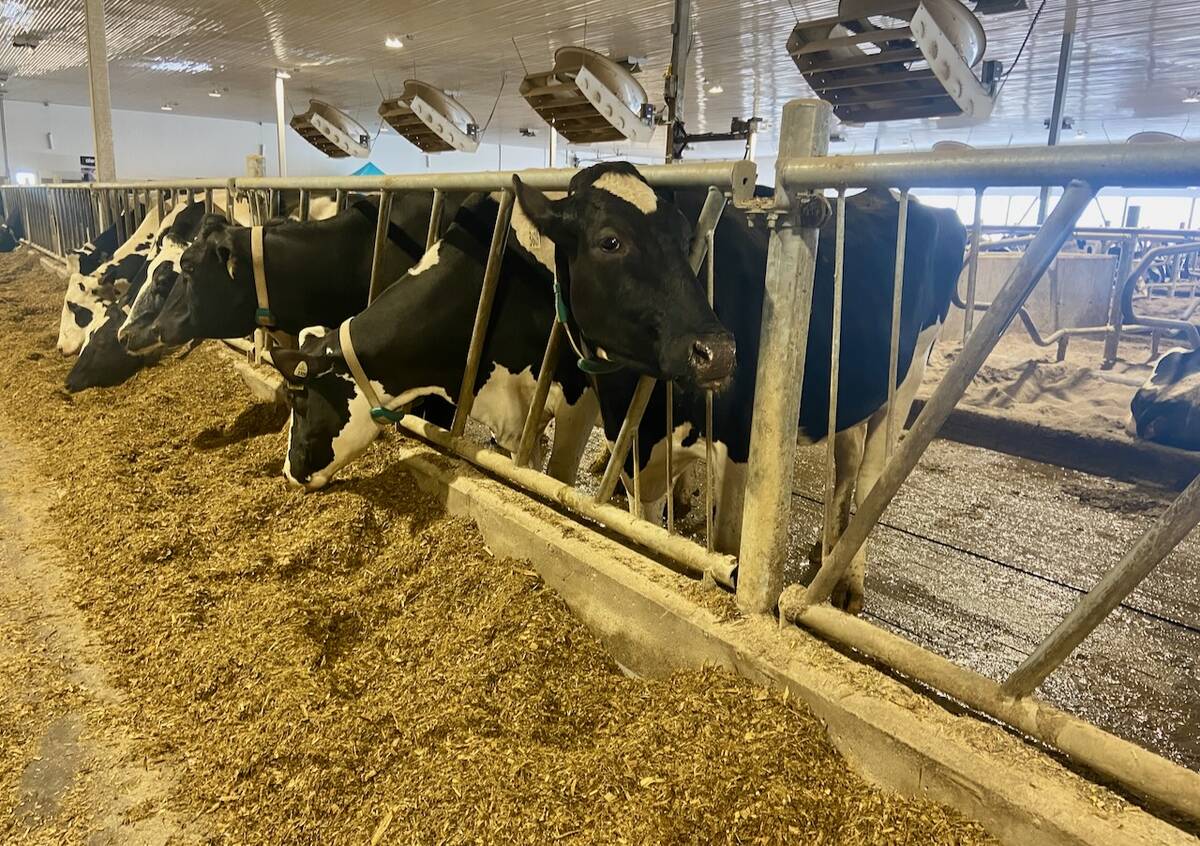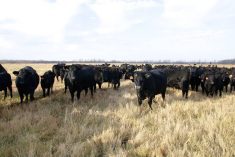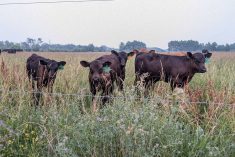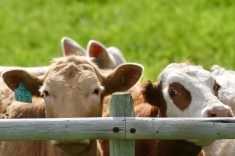As Lorne Cole drives the lonely side roads of east-central Alberta, he
sees the devastation of hot wind, drought and voracious grasshoppers.
As the range specialist in Alberta’s Special Areas, he does his best to
advise producers on pasture and water management. There has been no
substantial precipitation for three years.
“The last good rain we had was July 14, 1999,” he said.
This is tough country, inhabited by a hardy few who know all too well
the meaning of drought, hard winters and insect damage. This drought
Read Also

U.S. farm group supports supply management
U.S. grassroots farm advocacy group pushing new agriculture legislation that would move towards supply management like Canada has for dairy industry
has been worsened by a lack of winter snow cover.
More than half the cow herd is gone. Many people in the area rely on
cattle for their entire income. They have sold as many as they dare,
including heifers that were not bred this year.
There are almost no weeds and the native range is dormant. Grass takes
time to recover and if rain returns next year, Cole said a good flush
of annual weeds are expected to spring up and compete with the forage.
Plant roots are shortened and even in cases where moisture is found
further down, the roots cannot reach.
Feed continues to be hauled in from as far away as the Peace River
district.
Sporadic showers have come to the area. Some dugouts refilled while
others are dust bowls. Last year the Special Areas and the Alberta
government laid 400 kilometres of pipeline to bring water to the
thirstiest.
Private groups laid another 400 km of pipe that drew water from dugouts
and deep wells. More pipelines are to be laid this summer.
Grasshoppers have devoured what little greenery is left. Four hoppers
per sq. foot are considered serious, but agronomists are counting
between 30 and 80 grasshoppers per sq. foot.
Perhaps the worst part of this drought is the psychological stress.
“No natural disaster is harder on the psyche than a drought,” Cole
said. “It wears you down, day after day.”















